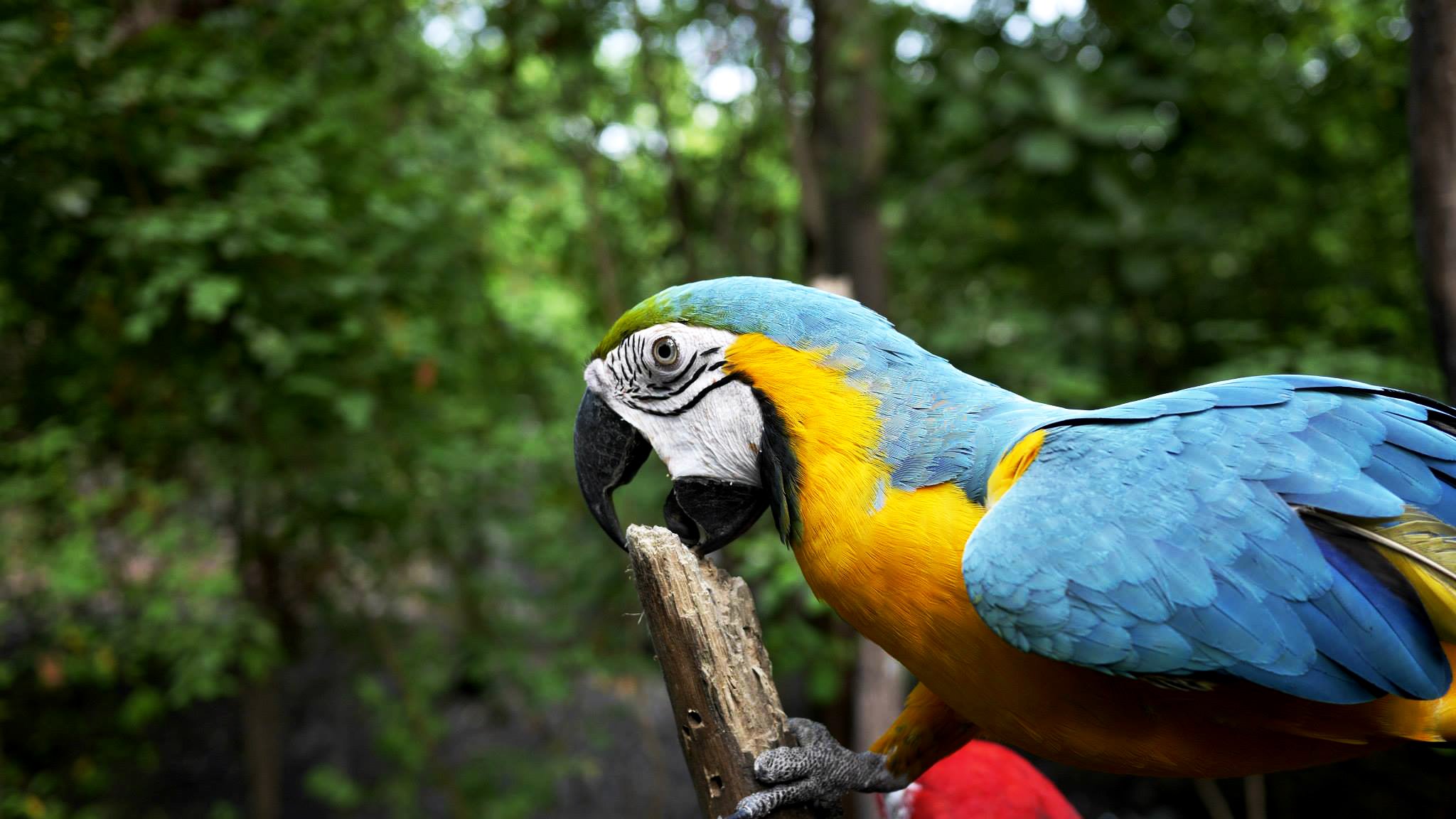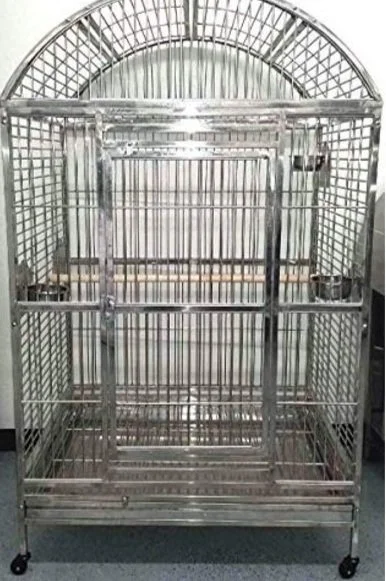
If you have specific parrot care questions, please don’t hesitate to contact us!
Parrot Care Info
Information on housing your parrot
Cages
We believe that all parrots deserve the largest cage possible. Round cages are not appropriate for any parrot. Parrots should only be housed in environments that give them lots of room for flapping and foraging; room for a wide variety of perches (cloth, wood, rope, etc.); multiple feed dishes to encourage activity and natural foraging instincts; bar spacing that is an appropriate size; and they should receive plenty of time outside the cage.
Enrichment
Parrots are intelligent, curious, and active critters. Wild parrots spend much of the day foraging for food and water as well as flying and climbing around their habitat. In a captive environment, it’s important to mimic many of these behaviors for birds to keep them mentally and physically healthy. In addition to time outside of their cage, it’s important to provide foraging and interactive toys.

Information on feeding your parrot
Foods to avoid:
Avocado
Eggplant
Fruit pits and seeds
Chocolate
Mushrooms
Onions and scallions
Garlic
Uncooked beans
Meats and dairy
Xylitol (common sugar-free artificial sweetener)
Safe foods for your parrot:
Apple
Apricot and peaches (pit removed)
Bananas
Berries (including raspberries, blueberries, blackberries, strawberries, etc)
Cherries (pits removed)
Coconut
Dragon fruit
Figs
Grapes
Melon
Kiwi
Mango
Nectarine
Orange
Passionfruit
Papaya
Peaches
Watermelon
Fruits
Asparagus
Beets
Peppers
Broccoli
Squash
Carrots
Corn
Cucumber
Sweet potato
Peas
Vegetables
Other important notes when caring for your parrot
Birds have sensitive lungs. Avoid using any brand of nonstick cookware, as fumes from nonstick coatings like Teflon can be toxic to birds.
Never use self-cleaning oven settings or nonstick oven liners when birds are in the home. The fumes can be deadly to birds.
Avoid smoking, lighting candles, incense, or air fresheners. These scented items can be very dangerous when birds breathe them in.
Avoid using hard household cleaners that include chemicals such as bleach or any aerosols. There are many bird friendly cleaning products, in addition to home-made cleaners, such as vinegar. If you need to use harsher chemicals, remove birds from the area and ensure ventilation for a few hours before the birds are in the area again.
Ensure that any house plants birds may have access to are non-toxic. Many common house plants such as lilies, poinsettias, and rhododendrons are toxic to birds.
Avoid using aerosols (e.g., hairspray, sunscreen, cooking spray) around birds. Only use these types of products outside or in a well ventilated area, away from birds.
Fresh air and sunlight can be great for your bird! Be sure to only take your bird outside in a small cage, pet carrier, or well fitting harness to avoid the bird getting loose or becoming prey for any predators around.
When purchasing toys, select toys made in America, as toys from some places, such as China, can contain lead— which is very toxic to birds.


